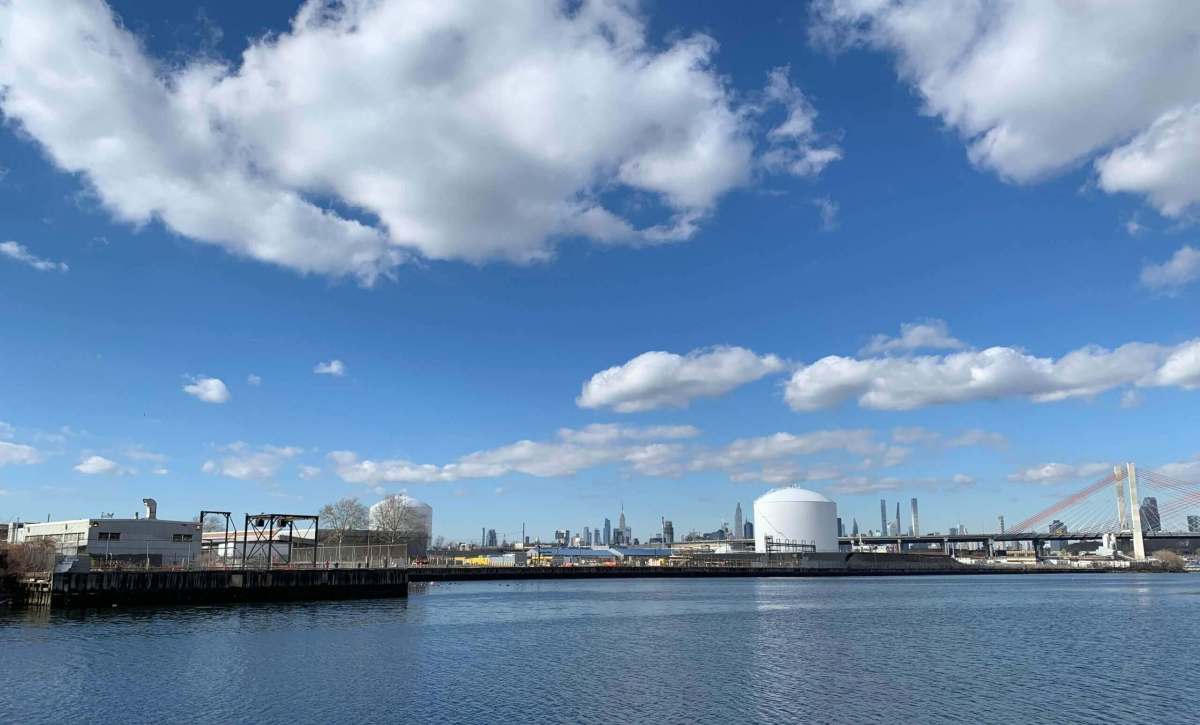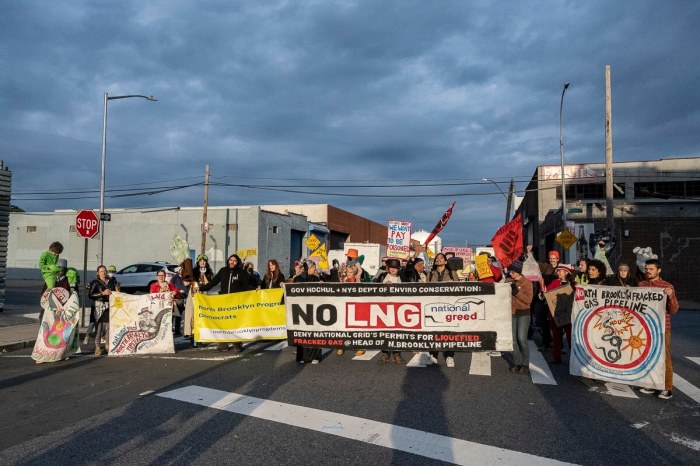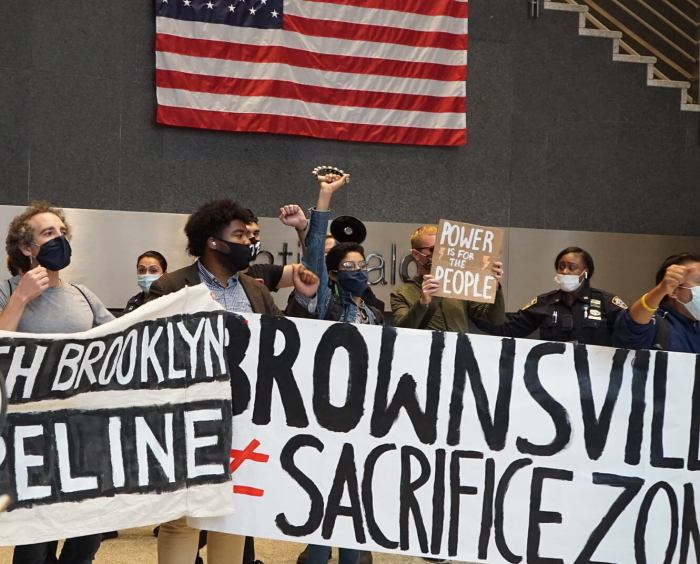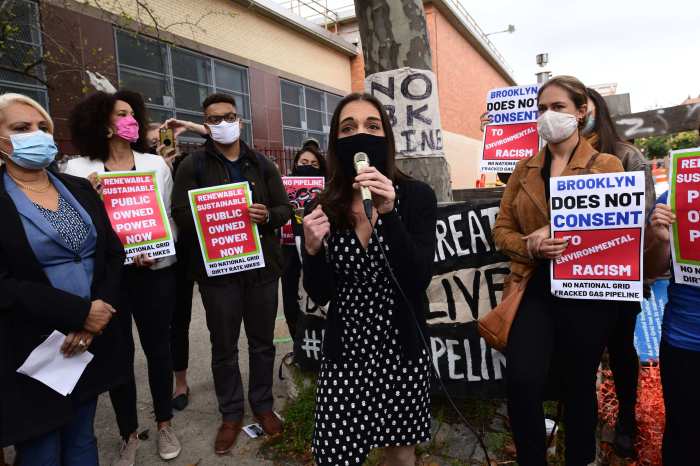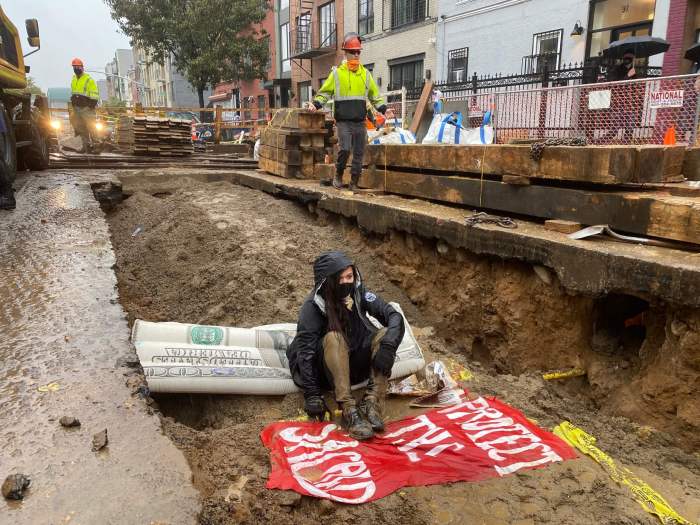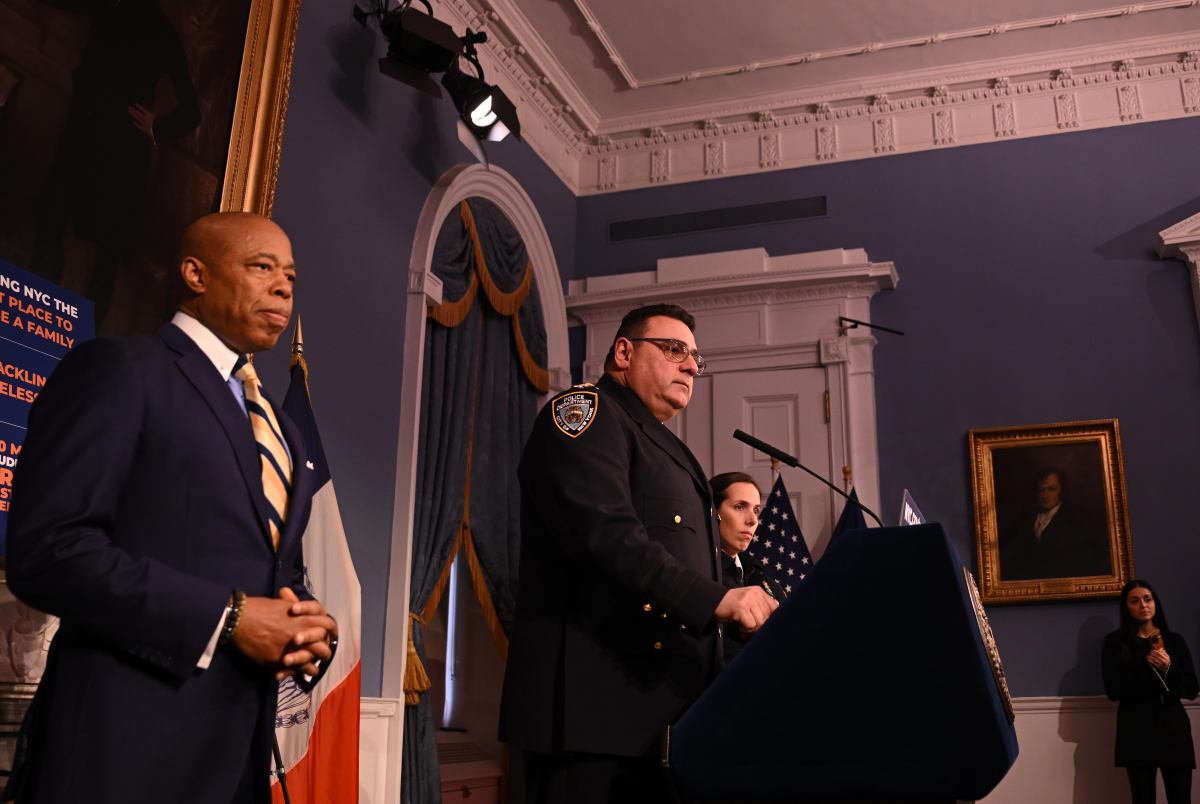The holiday season is here! In New York, that also means we’re heading into the coldest part of the year, when reliable access to heat becomes critical to keep our families and businesses warm and safe through the winter.
At a time when supply chains remain in turmoil and sudden, extreme cold is more common, ensuring consistent access to heat during the winter requires planning years in advance. That is why we cannot afford to delay moving forward with National Grid’s Greenpoint Vaporizer Project.
These small, but vital units are critical to heating New Yorkers’ homes on the coldest days of the year. During the summer and warm periods of the year, National Grid liquifies available natural gas and stores it. Then, when temperatures drop, vaporizers are used to warm this liquified natural gas (LNG) back into a gas that then passes through existing distribution infrastructure to homes throughout the city.
National Grid’s Greenpoint Energy Center has used this process to safely heat New Yorkers’ homes for more than 50 years. The proposed new vaporizers would ensure the facility can continue to meet rising energy demand. In fact, the New York Public Service Commission (NYPSC) found that there are no other viable, short-term solutions.
This project is not only vital to keeping New Yorkers warm, but it is also an important step toward a clean energy future. The new vaporizers are more efficient than existing equipment, meaning they can provide the same service with lower greenhouse gas emissions.
Despite the clear need for this project and the environmental benefits, some opponents are pointing to a recent report by PA Consulting to claim that we can delay moving forward with this critical infrastructure investment. However, this conclusion is based on numerous faulty assumptions and a misunderstanding of the risks even a short-term disruption in the gas supply could pose.
For one, the PA Consulting report fails to consider the increasing risk that upstream supply sources will fail to deliver in the future and the fierce competition among utilities, generators, and other end-users for gas supplies in an increasingly tight market in the northeast U.S. This is a major oversight, because even a short-term supply shortfall could lead to the loss of pressure in the distribution system, which could require curtailing service to thousands of customers for extended periods. An outage like this would impact all New Yorkers, but it would hit low-income families and older people who cannot easily relocate particularly hard.
Furthermore, the report suggests delaying a decision to move forward with the Vaporizer Project until just 18 months before it would be needed to meet demand. This timeline is completely at odds with the reality of permitting, siting, and constructing infrastructure. Attempting to build a project of this magnitude on a just-in-time schedule is a recipe for disaster, with even the smallest construction delay forcing New Yorkers to go without heat when they need it most. This process to this point has taken over two years.
Ultimately, the recommendations in the PA Report would return us to a “single point of failure” approach – where the ability to meet demand is dependent on securing the bare minimum supply, just in time. Anyone who remembers the days of moratoriums knows this is not a tenable short-term solution, and certainly not a long-term plan for keeping New Yorkers warm during the coldest months of the year.
The Greenpoint Vaporizer Project was the result of an exhaustive public process that considered design day requirements, hydraulic modeling, safety, cost, implementation risks, emissions, community impacts, public input, and other factors – and leveraged decades of gas system engineering and supply planning experience to design a project that will ensure consistent, reliable heat for New Yorkers. PA Consulting’s recommendations, on the other hand, are based on flawed assumptions and fundamental misunderstandings about the reality of what it takes to provide reliable, affordable heat in New York.
I know which process I trust to keep my family warm during the winter. I hope our leaders in Albany do, too.
Randy Peers is the president and CEO of the Brooklyn Chamber of Commerce.


